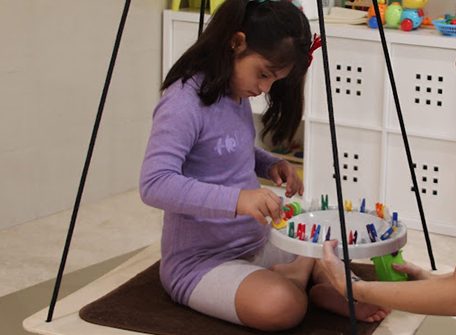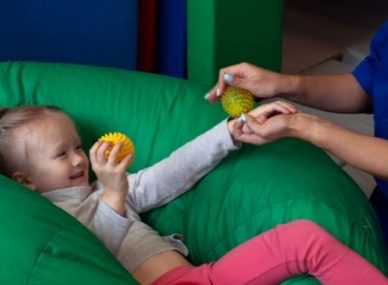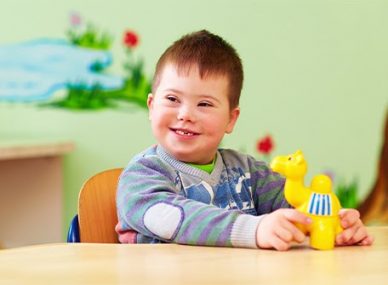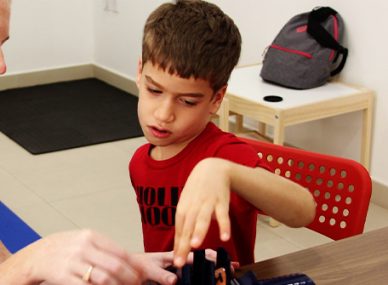Do you find your child’s behavior confusing? Does your kid react strongly to bright lights or loud noises? Does your child scream angrily when his/her face gets wet? Maybe he/she complains about her clothes being uncomfortable, or they may have trouble fastening their buttons.
These tantrums, oversensitivity or clumsiness point to issues with the sensory processing of your children. In other words, your child may be suffering from a Sensory Processing Disorder (SPD)!
Do you have a feeling that your child might have a Sensory Processing Disorder? Here is everything you need to know about it!
What is A Sensory Processing Disorder?
Before starting with the essentials, it is important to know what this disorder stands for. In simple words, a sensory processing disorder is when a child has trouble processing actions through senses, like sight, smell, touch, hearing, taste, movement etc., and they can’t respond to the stimuli appropriately.
For example, they might touch something but wouldn’t feel it or see something and wouldn’t process what it is.
Who Can Have A Sensory Processing Disorder?
Usually, children with high functioning autism and Asperger’s syndrome carry the most risk of sensory processing disorder due to their developmental disabilities. However, it can also occur in children born prematurely or with brain injuries, learning disorders or other conditions.
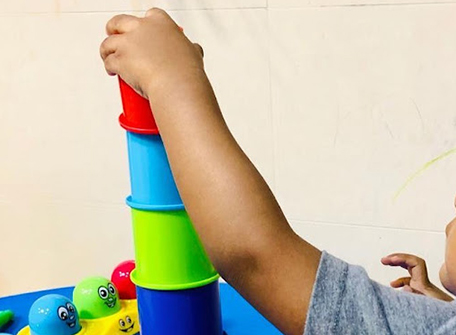
Causes of Sensory Development Disorder
For one, the primary reason for this disorder is still not known. However, it is majorly seen in autistic individuals because of their irregular brain functions. Recent research reported that some of these irregularities might be inherited.
Symptoms of Sensory Processing Disorder
If you’re contemplating whether or not your child has a Sensory Processing Disorder, then there are a few signs that you can look for. Children with this disorder are unable to process external stimuli to form an appropriate response. However, they may also be either;
Oversensitive:
- May seem clumsy or have a poor balance
- React poor to movements or have poor reflexes
- Might gag on food textures
- Might wear selective fabrics that they feel nice on their skin
- Might despise sounds like vacuums, airplanes, sirens etc
- Lights may seem very bright to them
Under Sensitive:
- Might chew on things (their hands, pens, equipment, clothing etc.)
- Have sleeping problems
- Look for thrilling experiences, like jumping, height and spinning without feeling dizzy.
- Will not sit still for more extended periods.
- Can’t tell things like dirt on their face or runny nose.
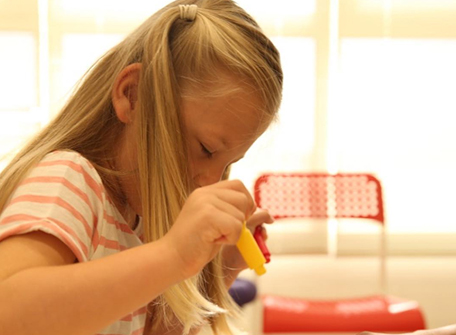
Other than that, some more common symptoms are;
- They dislike getting dirty
- They have an odd posture
- Lack creativity
- They lack imaginative play
- They refuse to eat a certain type of food because of how they taste or feel when chewed.
- Pull back when touched
- Appear clumsy all the time
- They are in constant motion; you might catch them fidgeting a lot of the time.
- Face trouble calming down after a fight or an argument
- Get angry too quickly
- Cant handle small objects like buttons or rings etc.
These are just some symptoms that resulted in a diagnosis of Sensory Processing Disorder. If you detect any of these symptoms and think that they may get serious, then contact the doctors as soon as possible. An early diagnosis is always better than one done in the final stages.
How Is Sensory Processing Disorder Diagnosed?
When parents usually think their child is a victim of this diagnosis, they first check for their symptoms. If they are still unsure and want to consult a professional, the preferable option would be to go to an occupational therapist. They will further give their analysis through a few observation sessions with the child and diagnose them accordingly.
This brings us to our next concern;
How is Sensory Processing Disorder Evaluated?
Children who show such symptoms mentioned above should be checked for other behavioral and mental conditions like Autism and Anxiety disorder as recommended by the American Academy of Pediatrics (AAP). A specialist doctor can see behaviors and observe well to check whether the child is a victim of the condition or not. The critical things observed include the child’s ability to walk, balance, control and coordinate movements and their response to certain stimuli.
Can the Sensory Processing Disorder be Prevented or Avoided?
As of yet, this disorder is unavoidable because the doctors haven’t found the cause.
Treatment of Sensory Processing Disorder
According to recent research, therapy is the most beneficial treatment to SPD in teaching children to manage their actions, behavior and challenges. These sessions are to be led by trained professionals who are licensed to help the child cope with the disorder. These professionals will assess the child based on their conditions, whether over-sensitive, under-sensitive or both.
Types of Therapies to Treat Sensory Processing Disorder
Overall, there are three types of therapy;
- Sensory Integration Therapy (SIT)
This is a fun way to get the child used to the stimuli they fear. It is held in a controlled environment; through creative acts, playing, and physical contact, they interact with the stimulus regularly, helping them cope with their fears without getting overwhelmed.
- Sensory Diet
A sensory diet is based on the child’s needs; these are activities that a child is expected to practice at home and school to increase focus and productivity. These exercises can include; a 10-minute walk, a 10 minutes swing ride, access to in-class music, fidget toys etc.

- Occupational Therapy
This is another version of therapy that may help polish your child’s motion skills, such as handwriting, scissor usage, climbing stairs, aiming to throw a ball etc. This type of therapy can also teach the child basic working knowledge like using utensils or dressing up every day.
Wrapping Up
Living with a child with a sensory processing disorder may be challenging; at times, parents feel alone and isolated because they have to make excuses for their child’s behavior. On the other hand, the effect on the child is something we can’t fathom, mainly because they feel completely alone and different. They find it hard to fit into the normal and struggle with daily tasks.
Even though there will always be pressure, consulting an occupational therapist might be beneficial for both the parents and the child to seek help. Therapy can help overcome some behavioral disputes, if not all, so definitely consider talking to a professional.
Click here to schedule an appointment today.


